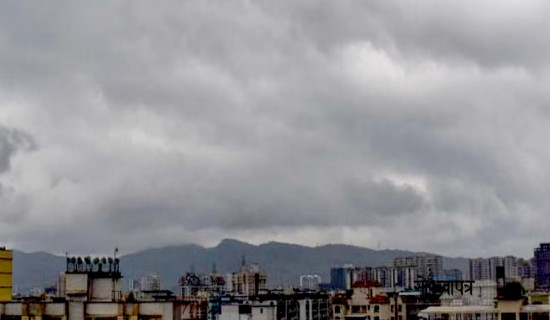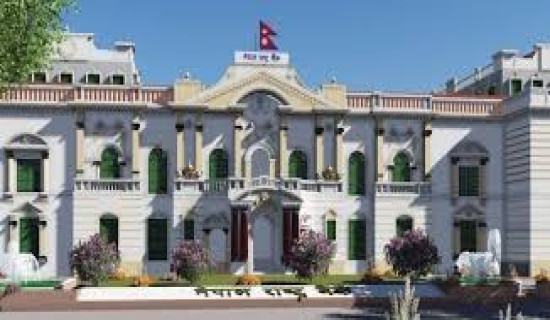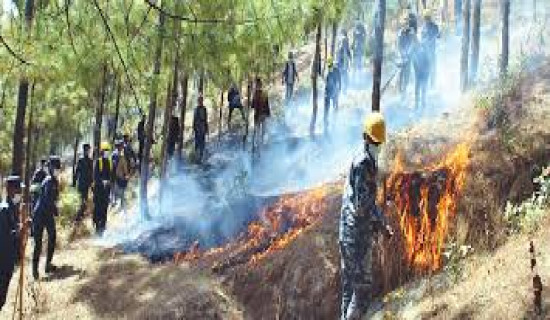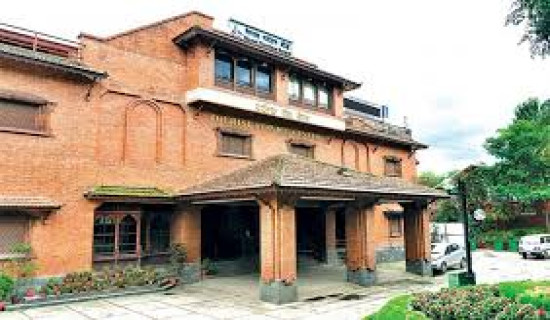- Tuesday, 17 February 2026
PM’s China Visit Why It Matters For Nepal
Prime Minister Pushpa Kamal Dahal Prachanda is scheduled to land in China on September 22, following his attendance and address at the annual United Nations General Assembly (UNGA) session in New York. The arrival marks Prachanda's third visit to China as Prime Minister, with previous trips taking place in 2008 and 2016. China matters a lot for Nepal and the magnitude of this visit is clear as it lends credence to China's significance as a close neighbour, an expanding economic and military power that wields considerable weight in the regional geopolitics. Prime Minister’s meeting and talks with the Chinese President and Prime Minister will reaffirm the historic and multi-faceted ties that have existed between the two nations for generations.
The visit's agenda includes discussions on various bilateral issues, leading to agreements and understandings on trade and transit, cross-border power and railway infrastructure, investment in energy sectors, promoting tourism in Nepal, road construction in bordering districts, technical assistance for operationalising two international airports in Bhairahawa and Pokhara constructed with Chinese support, and the reopening of border points that had remained closed due to the 2015 earthquake and the COVID-19 pandemic. Notably, ahead of our PM's formal visit, the major entry point for Chinese goods, the Tatopani Border, has resumed operations which are considered a friendly gesture from the Chinese side. The resumption has relieved stress among many Nepali merchants, many of whom are dependent on this route for imports of Chinese goods.
Irritant topics
However, numerous topics have become irritants in bilateral ties lately that need to be tackled to further strengthen the cordial ties. The visit follows in the aftermath of China's publishing of her official map that drew criticism in Nepal for excluding Nepal's territories of Kalapani, Limpiyadhura, and Lipulek, places India has utilised for strategic purposes. While it's doubtful that the matter of the controversial Chinese map would be addressed during the visit, it remains a topic of curiosity and worry among Nepalis who have hoped that the problem should be handled sooner rather than later.
Furthermore, the visit will also give insight into how Nepal would manage China's global endeavour, the Belt and Road Initiative (BRI). Despite Nepal's agreement with China on the BRI six years ago, the nation has been cautious about pursuing BRI projects due to worries surrounding funding and project modalities. In May 2022, the Chinese Ambassador to Nepal, Hou Yanqi, claimed that building and refurbishment of Nepali airports in Kathmandu, Pokhara and Bhairahawa took place under the BRI framework, but in June 2023, Nepal's Foreign Minister N.P. Saud indicated that no BRI projects have been implemented in the nation. Additionally, China has established the Global Development Initiative, the Global Security Initiative, and the Global Civilisation Initiative, although Nepal has not joined either the GCI or the GSI, despite China's repeated lobbying attempts. China this time may try convincing Nepal to take part in them.
Undoubtedly, geopolitical factors influence Nepal's relationship with China and any disturbance would raise worries of China. Nepal's adoption of the US-sponsored Millennium Challenge Corporation (MCC) projects has made China unhappy since China perceives the MCC as a ploy to strengthen American influence in Nepal. It also considers the MCC part of the Indo-Pacific Strategy (IPS). It fears that American presence in its neighbourhood will augment raising its security concerns. Initially, several communist parties, including the CPN-Maoist Centre, in Nepal rejected the MCC, citing its alliance with the IPS. However, when the Maoist Centre and Unified Socialist parties came to power after breaking from the Nepal Communist Party, they voted in favour of MCC implementation, likely creating discontent in China. Prime Minister Prachanda will need to address this matter of Chinese discontent during his visit.
Another possible source of embarrassment may be the split within the Nepal Communist Party. Several Nepali communist groups retain strong links with Chinese authorities, and China stresses its desire for unity among divided communist groups. The Nepal Communist Party, created after the merging of the UML and the Maoist Centre, supposedly gained Chinese support. It split three years later in 2020 and has not been welcomed by the northern neighbour. Prachanda, who leads the Maoist Centre, would need to explain the NCP's divide to the Chinese side.
In essence, Prime Minister Prachanda's visit intends to bring better stability to Nepal's geopolitical situation vis-a-vis China and India, two important neighbours. While China is a key trade and development partner, India remains a big bordering nation with great impact, particularly regarding Nepal's socio-economic well-being. Prachanda's visit without a doubt is also aimed at resolving misconceptions about China coming from blocked BRI projects, the creation of the MCC, and the NCP split.
Balanced tie
Finally, as with all high-level visits from Nepal, China is anticipated to give high priority to this visit too with promises to provide all possible assistance to a resource-strapped Nepal, a nation that firmly adheres to One China Policy and pledged to respect Chinese sensitivities. It is also vital to remember that by carrying out a balanced tie, Nepal has given continuity to its non-aligned, neutral policy in maintaining foreign relations which China perceives positively.
The friendly ties with the powerful northern neighbour also provide a sense of balance for Nepal in the region when it comes to its security concerns with the southern neighbour. In the end, it should also be remembered that the Chinese are often interested in having a friendly government in Nepal which can 'correctly' handle her political, economic, and strategic interests. China would stay content, provided our authorities do not create any disturbance to her interests.
(Upadhyay is former managing editor of this daily.)
















